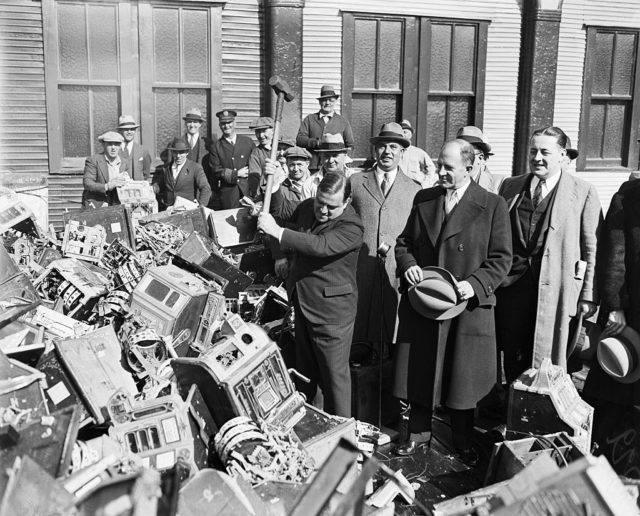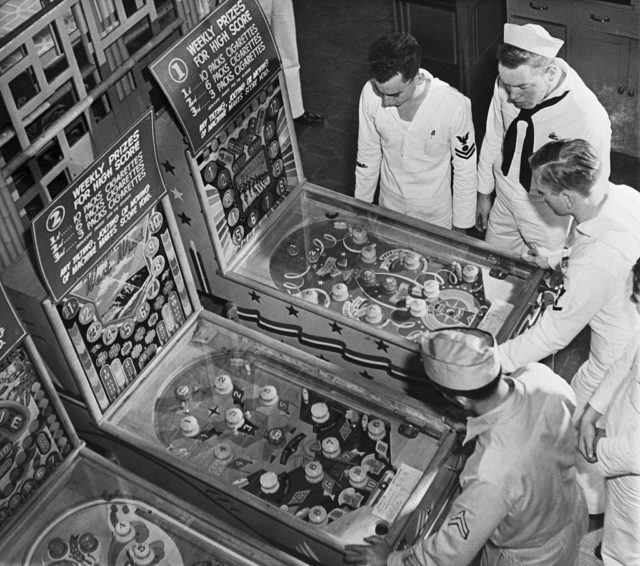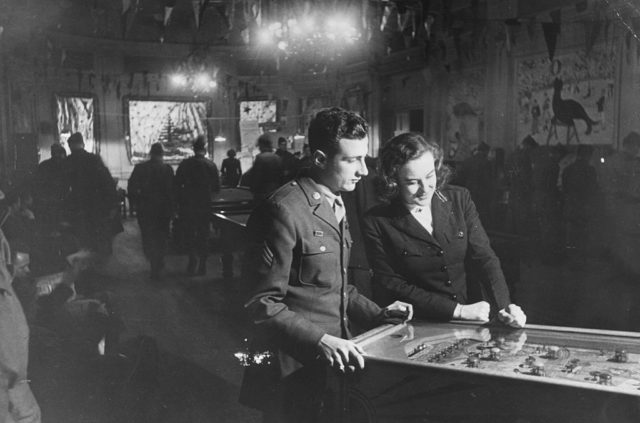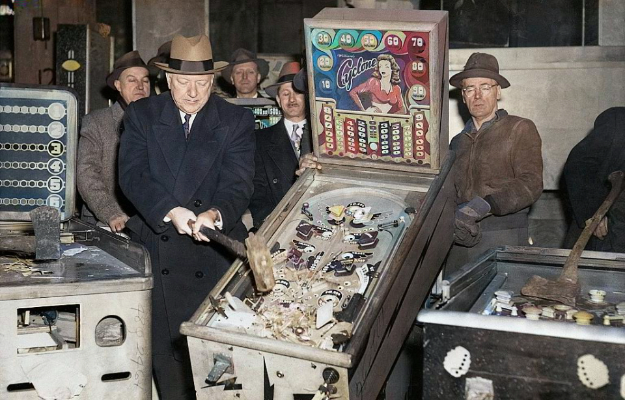There’s nothing quite like visiting an arcade and playing a rousing game of pinball – noises pinging, lights flashing, watching your score creep higher and higher. Yet these games were once seen in a much less favorable light, as they were believed to be a form of low-life entertainment associated with the mob. By the mid-1940s, many American cities had outlawed the machines, largely due to the attack on Pearl Harbor.
Crusade against pinball
The war on pinball was largely started by Fiorello LaGuardia, mayor of New York City between 1933 and 1945. He was elected on a platform that promised to do away with corruption and crime, particularly by hitting back at the Mafia. He made it a personal mission to “drive the bums out of town.” LaGuardia’s first target was slot machines, many of which were controlled by mob boss Frank Costello.

This proved very successful, and he was able to remove thousands of them from the city – taking to some with a sledgehammer before they were sunk on a barge. His next target became pinball machines that were manufactured in Chicago, a city full of major organized crime. LaGuardia asserted that this game “[robbed the] pockets of schoolchildren in the form of nickels and dimes given them as lunch money.”
Pearl Harbor changed everything
Despite his campaign, it took a little longer for LaGuardia to see success in banning pinball based on morality concerns. It wasn’t until the Japanese attack on Pearl Harbor in 1941 that he gained a lot of traction. LaGuardia drew on the newly found positivity toward the conflict to argue that not only were pinball machines a waste of time, but they were a waste of important materials that should instead be used for the war.

He wanted “the metal in these evil contraptions be manufactured into arms and bullets which can be used to destroy our foreign enemies.” The message resonated with the people of New York, and on January 21, 1942 pinball was declared a form of gambling. This allowed police raids to commence. Within only three weeks, agents were able to collect roughly 3,000 games yielding 10,000 pounds of metal for the military.
Spread across the country
LaGuardia certainly got the ball rolling, and it wasn’t long before other American cities including Chicago, Milwaukee, New Orleans, and Los Angeles, followed suit. This of course never truly stopped the game, it just meant that it drove people to play it in secret. In the following decades, pinball remained a ‘morally questionable’ activity. It wasn’t until the 1970s that attitudes truly started to change.

Finally, in 1976, the original ban was officially lifted in New York, but it was no easy feat. Professional pinballer Roger Sharpe had to play in front of the city council and prove to them that the game actually did require skill, not just gamblers’ luck. He called where the ball was going to go before making the shot and, sure enough, he called it right.
More from us: How Pearl Harbor Forced the World’s First Global Commercial Flight
As with the ban’s initiation, other cities soon followed New York’s lead and allowed the game to be played again. Almost everywhere, that is. As of 2023, it is – shockingly – still illegal for those under the age of 18 to play pinball in South Carolina.
